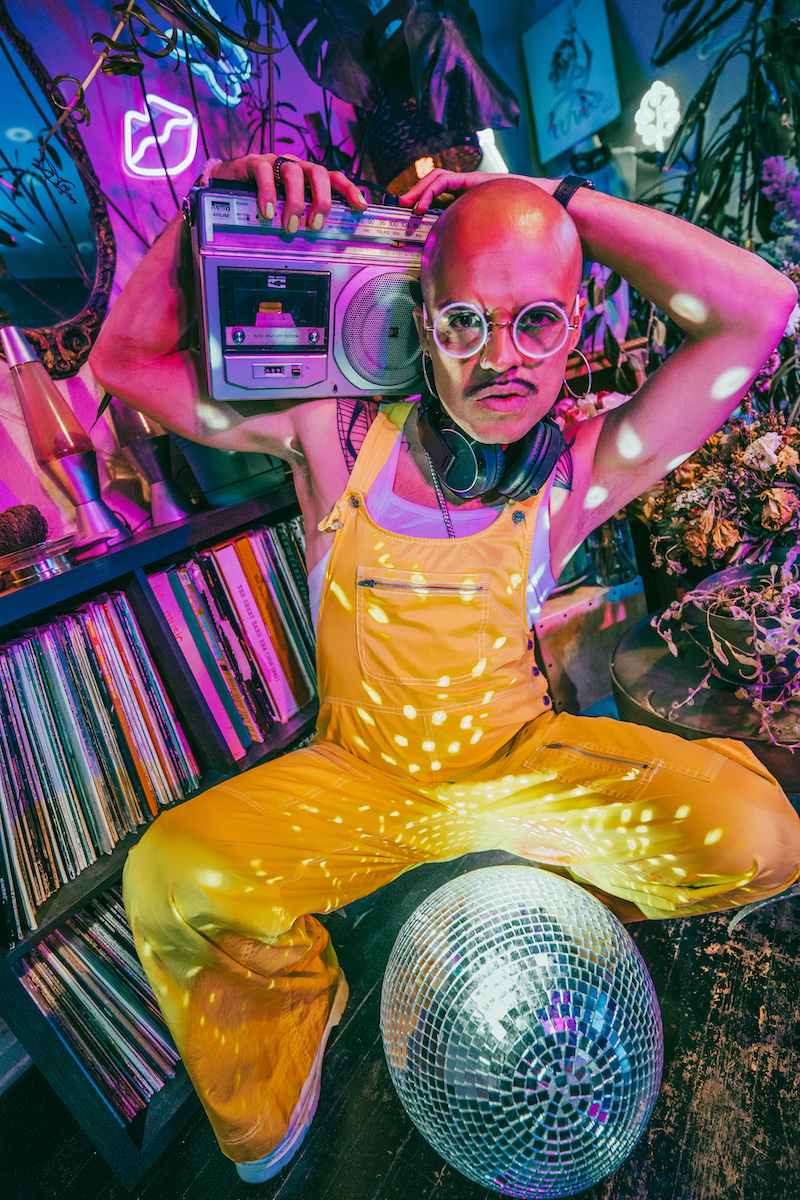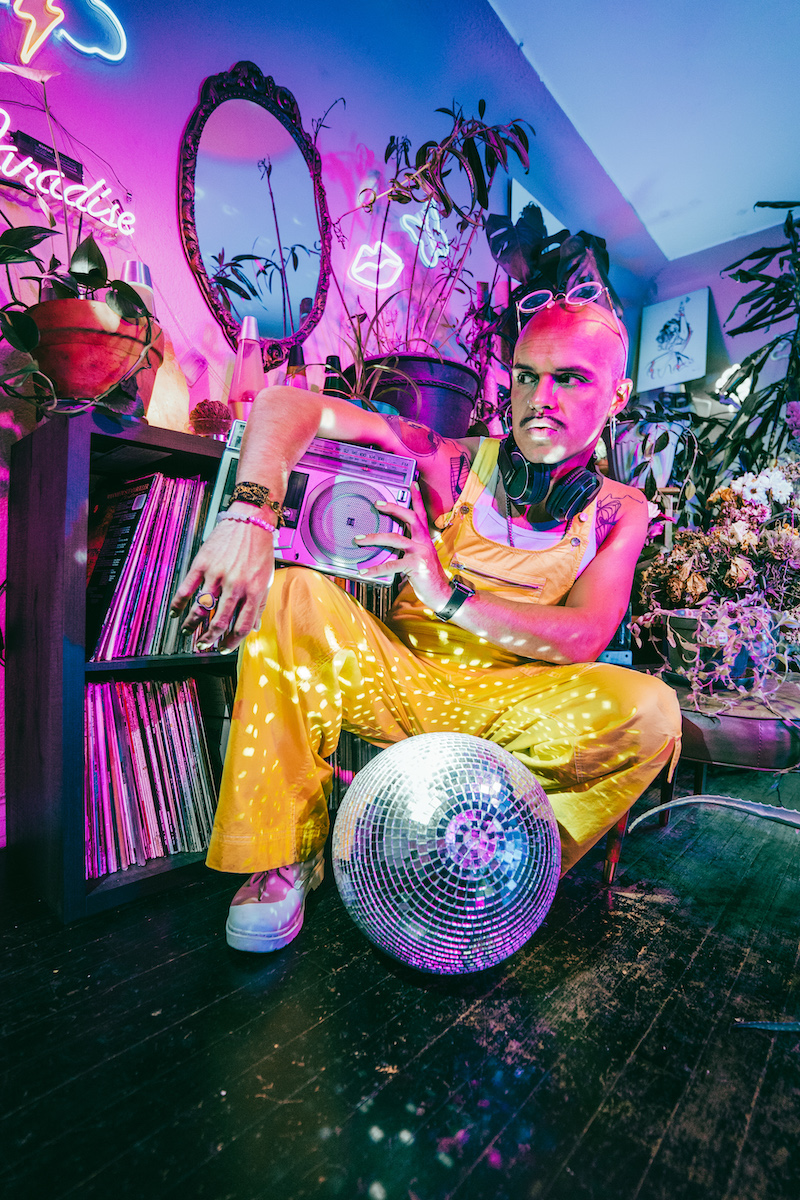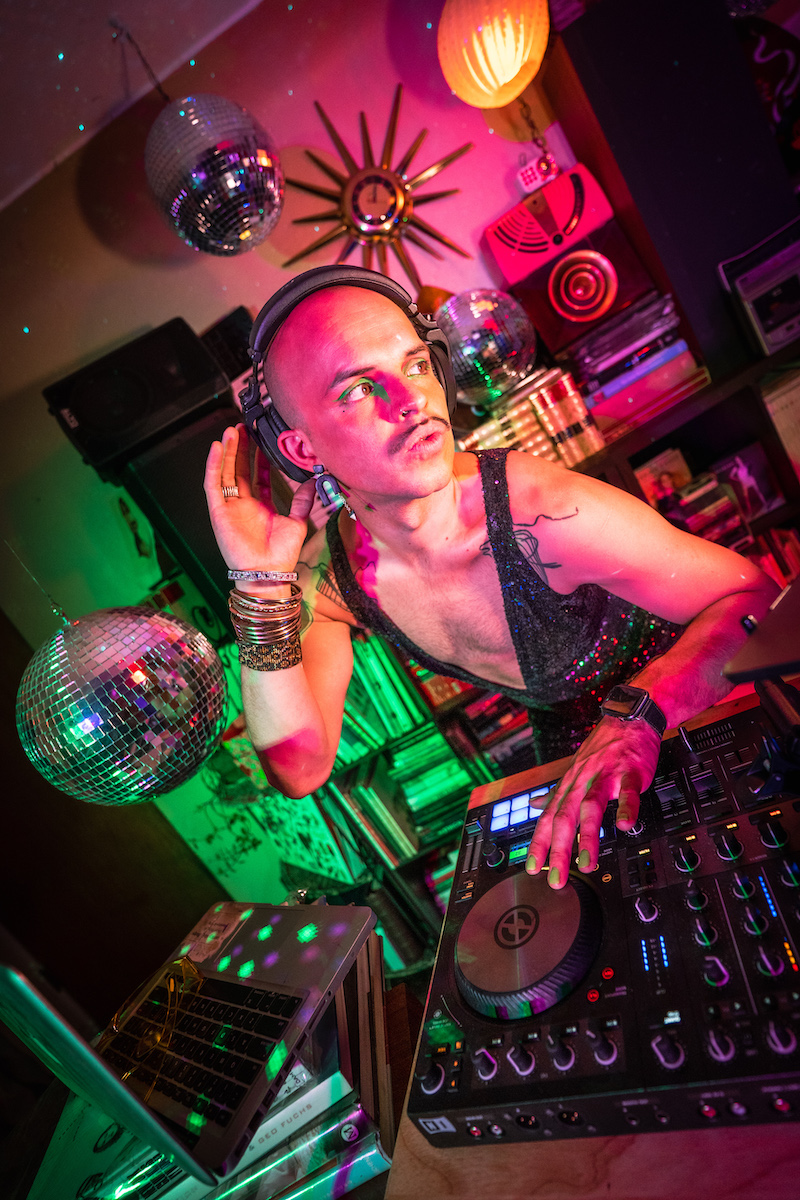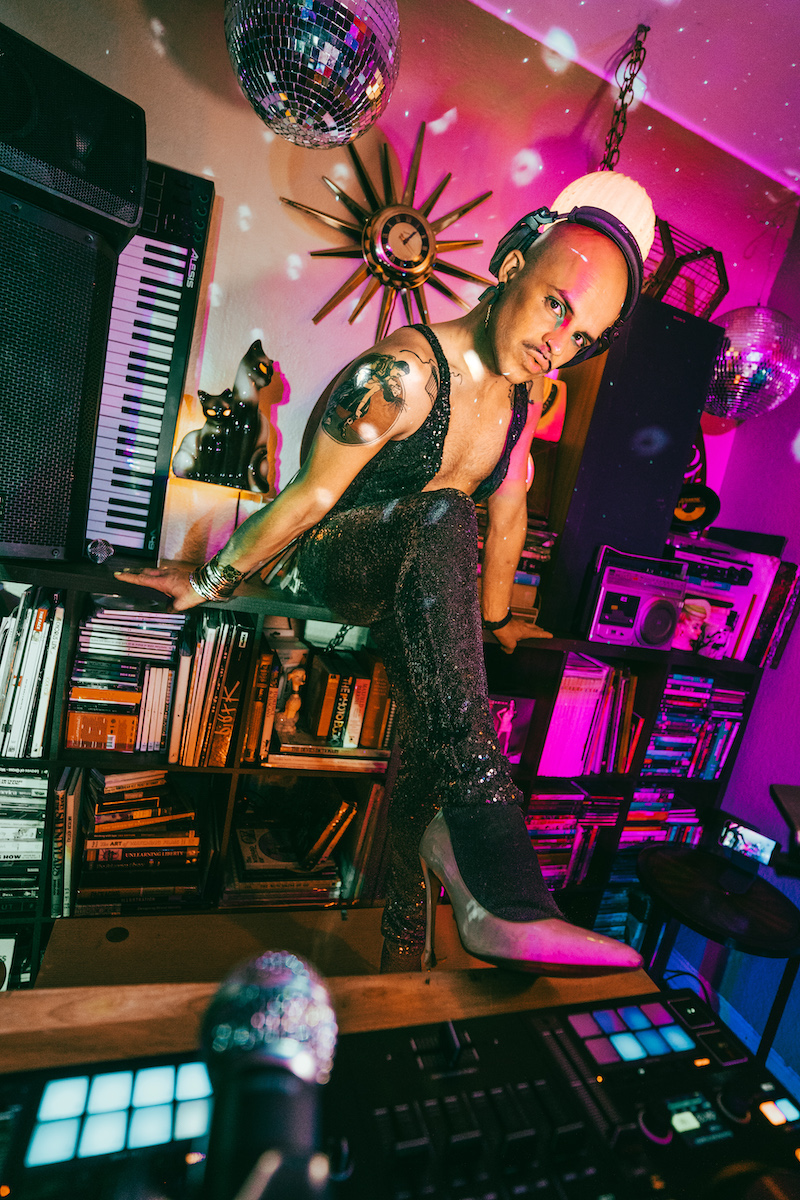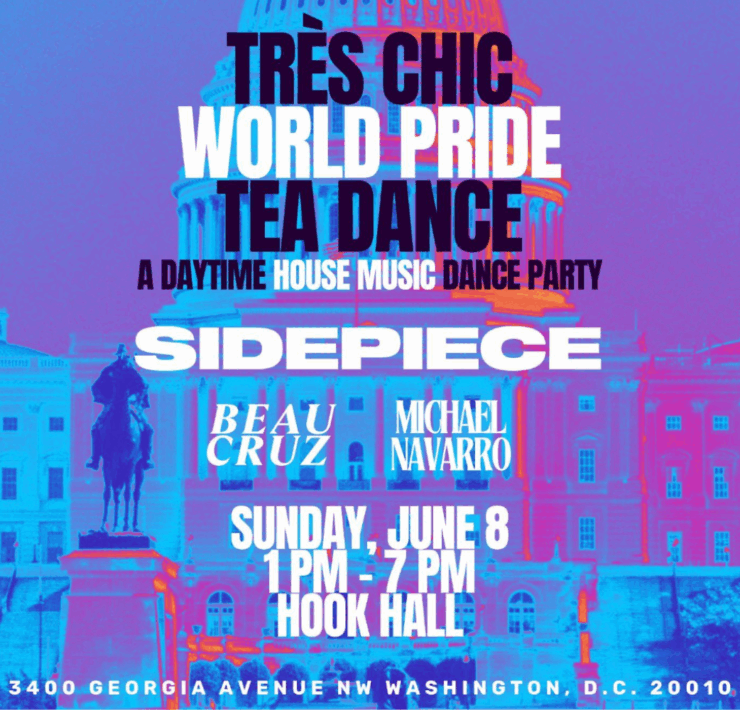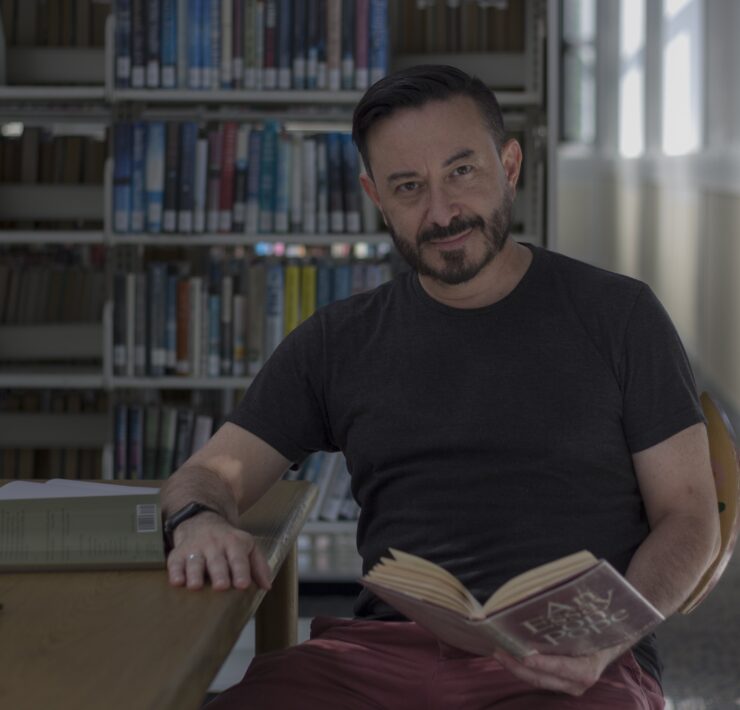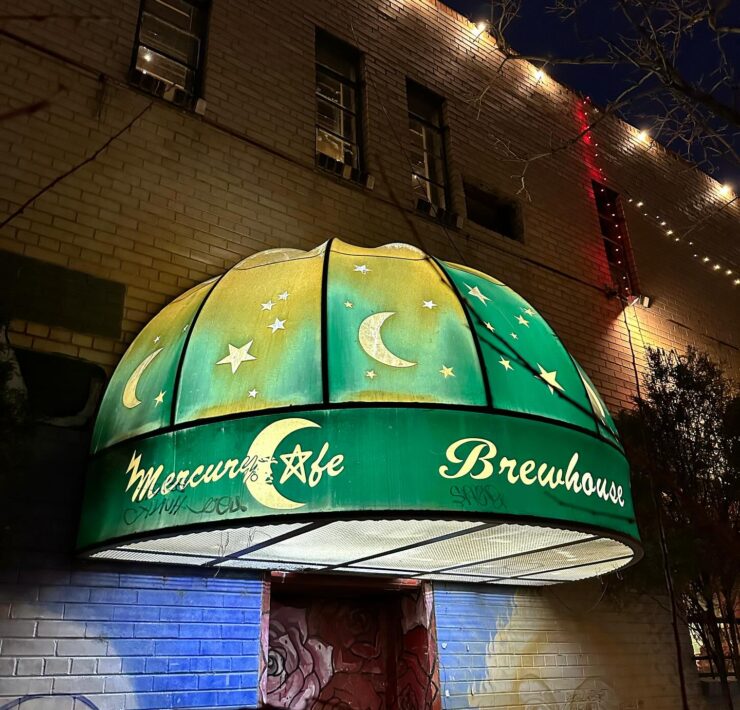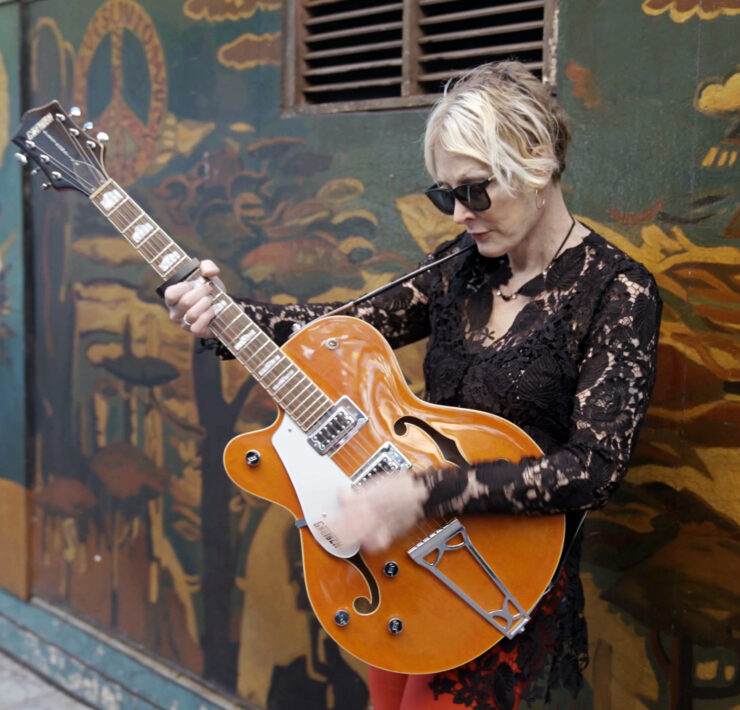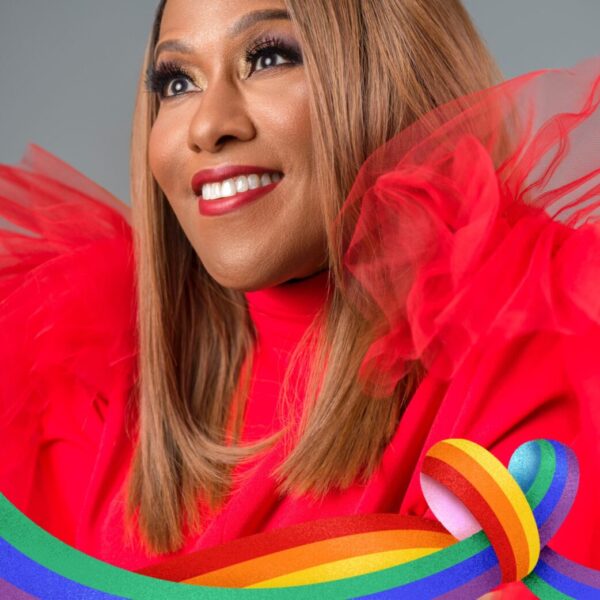Buddy Bravo is Giving Back to the Community One DJ Set at a Time

OUT FRONT Magazine's Creative Director & Head of Design @…
Local visual artist and DJ Buddy Bravo is giving back to the community one DJ set at a time. Buddy is a queer, multifaceted music producer who draws inspiration from fashion, vintage clothing, and queer culture. With a heart for music and Denver, he is focused on gathering queers together to party while also funneling funds from his events back into resources for underprivileged and marginalized communities.
Buddy felt deeply connected with music from a young age but had no idea what to do with it or how it could blossom into such a fulfilling career. He caught up with OFM to share his backstory, what’s current, and his dreams and aspirations for his career.
How did you choose your stage name, Buddy Bravo?
I’ve used it since I was a kid before, I ever thought about my career. One of my sisters actually gave me the name when I was very young. So it’s the only name I’ve used my whole life. In fact, I didn’t know my real name until I was in kindergarten.
How did you get into DJing and producing?
Production wise, I made my very first mixes on cassettes, cutting up pieces from songs and radio clips, movie quotes, etc., just, like, messing around as a kid and making edits and mixes. The first thing I did that was anything close to DJing was when I was in middle school, I very loosely DJed friends’ parties. Then when I was a freshman in high school, I DJed a few of our high school dances. That’s when I really started paying attention to curating music, and it was all starting to make sense.
I kept producing remixes, writing music, playing piano, and at the same time, curating playlists and DJing college events on campus. In 2017, I was asked to organize an afterparty for a fashion show that I was involved in, and of course I said yes. But then I realized very quickly I would have to learn a bit about new, digital DJing using laptops and decks because in 2003, 2004 when I was really starting, it was all CDs. I’d burn CDs, make custom edits, and have two separate boom boxes that I would plug into big speakers. That was very different then now, where you are working with digital files, mp3s and beat-matching.
I set out to learn how DJing had evolved. That’s how I started this most current leg of my career as a DJ. I was Djing on weekends and doing my design job during the week. Then during the pandemic, I ended up getting laid off from my regular job. And somehow it was really a beautiful blessing, because my DJing just took off naturally, and it just honestly hasn’t slowed down. The pandemic opened up my schedule and free time, and with this time, I produced two albums during the lockdown. One is an original album that’s entirely original remixes, music, beats. That was my first EP; it’s called Starpulse Twentyone. And then I made a Selena remix tribute album called La Rosa Eterna, which is available on my website as a physical CD. So, it kind of all fell into place with music production, design, and live performance, and I think it really is my calling. This is what I’m supposed to be doing–sharing music and creating music with people.
Who are some of your music inspirations?
Being a biracial and mixed race person—I’m Mexican and Italian, so Selena is a really big influence for me, just looking at her career, talent, gifts, and how she expressed herself. Selena is also a huge influence for me musically. Another songwriter and performer I love is Mariah Carey; she’s a really big influence for me. Girl Talk is a DJ that I studied a lot and learned a lot from his process and how he makes music. Same as me, he had a different career that eventually led to music, so he influences me and inspires me a lot. Bjork is also a really big influence for me, and how she approaches the bridge between classical music and electronic music. And then there are a ton of really good creative DJs locally in town that I just love.
How would you describe your genre of music?
In my head, I like to call my genre of music runway synth. That’s what it is. It’s music for the runway. I play a lot of diva house funk. I play a lot of my own music when I’m DJing, but it always just sounds like it’s made for the runway with a lot of sass and attitude.
What are some goals you wish to accomplish in your career?
I definitely want to make music for major fashion shows for designers. That’s a big goal of mine. I would also love to play some of the iconic Denver venues. I don’t care if I headline; I don’t care if I’m an opener; I just want to play some of these venues.
I grew up in Colorado. I’ve lived in Denver for 10 years, but when I turned 18 and could drive, I was driving up here for shows all the time. I grew up in a lot of these iconic venues, and I would just love to play as many of them as I can. Another goal of mine is to be able to pay my parents back for all of the years of supporting me and helping me grow throughout my life.
Where can someone see Buddy Bravo spin in Denver?
I post my schedule on my Instagram and all my social media. I am at X Bar several times a month, brunch often at The Triangle, and I’m at Băo Brewhouse pretty often as well. I also throw various events and dance parties around town. Instagram is the best way to find me!
How does playing music mostly for queer audiences influence what you play, and how much variation in musical tastes do you notice in different queer spaces?
I focus a lot on highlighting queer artists and queer producers, not exclusively, but that is something I really focus on. I try to bring music to people that they’ve never heard of, but really focusing on queer artists, independent artists, and local artists that aren’t going to be on the radio.
I find that the queer spaces and audiences are very open-minded. If you love music, you just naturally end up being open-minded because music is a very fluid thing, especially when you’re expressing yourself as a queer person. You’re just going through all these different emotions and feelings.
How does being a queer DJ influence what you play and your craft?
I really try to play for the message in the lyrics. As a queer person, I’m playing music that makes me feel confident and happy and makes me feel understood, and I hope that carries through. I think being queer, I try to represent everybody because we need to support each other. And I feel it’s an honor that I have a platform, so that’s how I try to use it.
As for being a visual artist, tell me a little more about that and your background in design.
I studied art at The Rocky Mountain College of Art and Design, where I learned about Illustration and design. I had a career for 10 years as a graphic designer in marketing and advertising. I’ve drawn and sketched my whole life. When I was a kid, all I asked for was art supplies, and still, that’s all I want now. It is a really good way for me to express and explore my ideas. It also is a way that I support myself. I sell artwork and merchandise, I design clothes and posters, and I do a lot of my own headshots. I create my own videos, promotional materials, and album covers. A lot of people say my style looks musical, flowing, and free. So it definitely is connected to my music for sure.
Anything else you’d like to share?
I throw a queer dance party in town called Drama Club, and we throw the dance party at Mercury Cafe. We’ve been doing it since 2018. We feature different DJs, performers, and hosts. The Mercury provides good food, dessert, a full bar, and mocktails. It’s a really great event that I love throwing and that I’m really really proud of.
We don’t do it in a bar space; Mercury Cafe is more of a restaurant, and that’s really important for me to support the sober community. Sober people still want to have a social life and a nightlife. A lot of queer spaces end up being sponsored by alcohol companies. I try to be mindful of my sober friends and believe we need more safe, sober-friendly spaces.
A big portion of my tips that I get are donated to local charities. One of them is Feeding Denver’s Hungry, which is ran by a queer man, Jim Sharper, since 2013. They focus on helping people that need assistance with food and shelter. I also donate to CASA Denver, which helps people that have been victimized by Immigration and Customs Enforcement (ICE). getting back into society–They provide hotels, transportation, legal help, etc.
A big part of my job as a queer person in the scene is also supporting other organizations. So taking the money I get from, like, partying, and throwing events, and having fun, and playing music for people, I funnel that back into the community, and that’s a huge privilege and will always be a priority for me. I challenge others to find ways to give back to the community you belong to.
Keep up with Buddy Bravo on Instagram @djbuddybravo
Photos by Julius Garrido
What's Your Reaction?
OUT FRONT Magazine's Creative Director & Head of Design @ Q Publishing House: She/They. Queer writer residing in Denver, Co. Inspired by LGBTQ+ stories.




